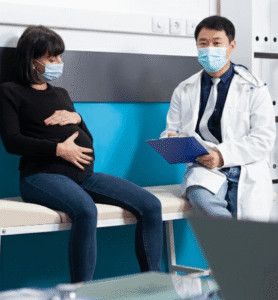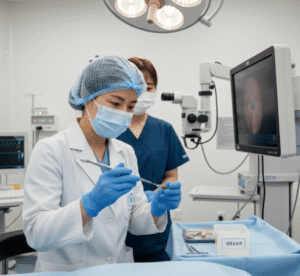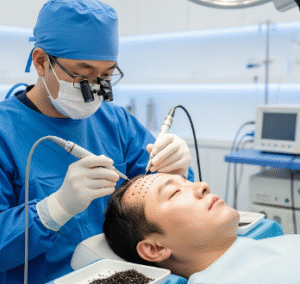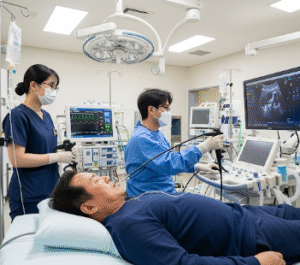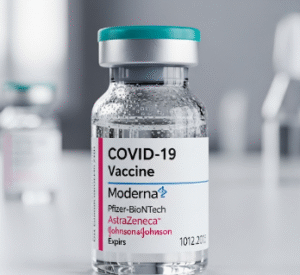Overview
German measles, also known as rubella, is a contagious viral infection that usually causes a mild illness but can have serious consequences if contracted during pregnancy. While rubella is now rare in Korea due to widespread vaccination, prevention and monitoring remain important to protect pregnant women and newborns.
What is German Measles (Rubella)?
Rubella is caused by the rubella virus and spreads through respiratory droplets when an infected person coughs or sneezes. It is different from measles, though the rash may look similar. Most people recover quickly, but infection during pregnancy can cause congenital rubella syndrome (CRS) in the baby, leading to serious birth defects.
Symptoms
Rubella symptoms are often mild and may include:
- Pink or red rash starting on the face and spreading to the body
- Low-grade fever
- Swollen lymph nodes (especially behind the ears or neck)
- Headache and fatigue
- Joint pain (more common in adults, especially women)
- Mild cold-like symptoms
Many cases are asymptomatic, which makes vaccination essential for prevention.
Causes
Rubella is caused by infection with the rubella virus, which spreads through:
- Direct contact with respiratory droplets
- Sharing food, drinks, or close physical interaction with an infected person
- Transmission from mother to fetus during pregnancy
Risk Factors
- Lack of vaccination (MMR vaccine: measles, mumps, rubella)
- Pregnancy without prior immunity to rubella
- Living in areas with lower vaccination coverage
- International travel to regions where rubella is still common
Complications
For children and adults:
- Rare cases of arthritis, encephalitis, or low platelet count
For pregnant women and babies:
- Miscarriage or stillbirth
- Congenital rubella syndrome (CRS), which may cause:
- Deafness
- Heart defects
- Eye problems (cataracts, glaucoma)
- Developmental delays
Prevention
- Vaccination: The MMR vaccine is the most effective way to prevent rubella. In Korea, it is included in the National Immunization Program and given in two doses during childhood.
- Pregnancy screening: Women are advised to check rubella immunity before pregnancy and receive vaccination if not immune (at least one month before conception).
- Herd immunity: High vaccination rates in Korea have virtually eliminated rubella transmission.
Treatment Options in Korea
There is no specific antiviral treatment for rubella; management focuses on relieving symptoms and preventing complications.
General management
- Rest and hydration
- Fever and pain control with acetaminophen or ibuprofen
- Isolation to prevent spreading the virus (especially from schools or workplaces)
Pregnancy care in Korea
- Pregnant women are screened for rubella immunity as part of routine prenatal care.
- If a pregnant woman contracts rubella, specialized counseling and monitoring are provided at advanced hospitals such as Seoul National University Hospital, Asan Medical Center, Samsung Medical Center, and Yonsei Severance Hospital.
- Fetal monitoring with ultrasound and specialized maternal-fetal medicine teams are available.
Public health measures in Korea
- Strict vaccination policies have nearly eliminated rubella.
- Nationwide surveillance ensures early detection of rare cases and prevents outbreaks.


